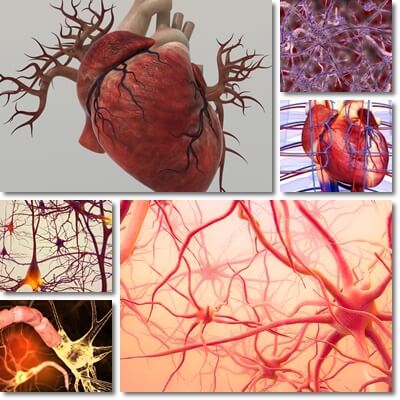How do you know when your magnesium levels are too low? Do you think you can tell you have a magnesium deficiency? Does low magnesium cause any symptoms? What are the symptoms to look out for that tell you your magnesium is low?
According to official statistics from not long ago, around two thirds of the US population had low magnesium levels.
While the degree of the deficiency varied from mild to severe, it was clear that too many people were not meeting their daily requirements of the mineral on a regular basis.
Despite foods high in magnesium being relatively accessible, and dietary supplements too.

What are the benefits of magnesium?
Magnesium is involved in over 300 different processes in the human body and its functions span to include multiple systems and organs. You need magnesium for good physical and mental health. Taking magnesium supplements corrects arrhythmia, including extrasystoles, calms palpitations and lowers heart rate and blood pressure.
Magnesium helps the heart muscle, and all other muscles in the body. If you have frequent and painful muscle cramps, including calf cramps or leg cramps at night, but also cramps under the chin and muscle spasms and twitching, then supplementing with magnesium is a great solution.
Taking magnesium can help keep anxiety under control, and even helps with depression. It lowers stress levels and helps you sleep better at night and feel rested both physically and mentally.
Magnesium is needed in bones and teeth too and it contributes to both bone tissue composition and bone metabolism, regulating the continual remodeling of bone tissue that takes place for the duration of a person’s life.
Are there any more reasons to show you just how important magnesium is for health? At the same time this wide range of benefits that can be attributed to the dietary mineral is also an indication of all the things that can go wrong if a person doesn’t consistently meet their daily magnesium requirements.

How do you know your magnesium levels are low?
Magnesium deficiency comes with many, many signs and symptoms.
The more severe the deficiency, the more symptoms you are likely to experience.
Just as important, some symptoms are more easily associated with a magnesium deficiency and make it more likely for a person to tell when their magnesium levels are low.
So what are some of the symptoms most likely to indicate a magnesium deficiency? The following signs and symptoms can tell you that you’re low on magnesium and on the spectrum indicating a deficiency:
1- Eyelid twitching or undereye twitching
If you find one or both of your eyelids are twitching, or you frequently experience twitching or spasms of your undereye area, then you stand a high chance of being low on magnesium.
Magnesium is needed for muscle function. If levels of magnesium in the body are low, you may experience sudden, involuntary contractions, or spasms, in various muscles of the body, including muscles controlling the movements of the eyelids and undereye area.
Orbicularis oculi is one such muscle. It is a muscle of the face located all around the orbit of the eye and it’s responsible for facial expressions.
It’s the muscle that closes the eyelids. Low magnesium can affect its function and result in usually painless twitching, spasms or involuntary contractions.
Note: Another very common cause of eye twitching can be exposure to drafts of air. For example, having air conditioning blowing in your face, sitting by an open window or in draft, wherever that may be, can cause muscle spasms.
2- Thigh or calf spams or twitching
Thigh spasms, also called thigh twitching, and calf spasms, or calf twitching, refers to painless spasms of the thigh and calf muscles.
These are essentially sudden, involuntary contractions of the thigh and calf muscles and usually painless. If they’re painful, they’re referred to as cramps.
If you experience thigh and/or calf spasms or twitching frequently, then it’s a good idea to check your magnesium levels.
Or supplement with magnesium for a few weeks since supplementation is generally very safe. If your magnesium levels are low, then taking magnesium dietary supplements should help resolve the spasms.
3- Frequent and painful muscle cramps
If you experience frequent and painful muscle cramps, whether it’s painful foot cramps, painful calf cramps or painful cramps in other parts of the body, it’s very likely your magnesium levels are not just low, but very low.
All the muscles in the body are highly reliant on magnesium.
A highly active lifestyle, working out all the time, particularly more intense physical exercise routines, but also a high mental load from chronic stress, anxiety and depression, all increase magnesium usage and requirements above what is normally needed.
This increases chances of a deficiency and makes it more likely for dysfunction to set in, hence symptoms such as painful muscle cramps. Supplementation can help tremendously and restore normal muscle function.
4- Tiredness, physical and mental
One big symptom of magnesium deficiency is tiredness. Magnesium supports muscle function and any increase in requirements, as well as not getting enough of it every day, can easily spark a deficiency.
And because the heart needs magnesium, and every other muscle in the body, it’s common to feel tired if a deficiency sets in.
Not just this, but magnesium is important for the nervous system as well and not getting enough of it can affect disposition and mental health which further adds to the mental load; this, in turn, creates the need for more magnesium in a vicious cycle encouraging of a deficiency.
So in addition to physical tiredness, magnesium-deficient individuals can also experience mental tiredness. Of course, the more severe the deficiency, the more pregnant the symptoms.
5- Frequent palpitations, extrasystoles and other arrhythmias
If your body isn’t getting enough magnesium on a day to day basis, at one point or another a deficiency will set in.
And because magnesium is involved in many aspects of cardiovascular health, you are likely to experience palpitations and arrhythmias if your magnesium levels are just too low for long enough.
Palpitations are a sensation of abnormally rapid and irregular heartbeats. Arrhythmia is when the heartbeat is irregular, such as premature heart beats or extrasystoles of the heart.
One way low levels of magnesium impacts the cardiovascular system is via the role magnesium plays in regulating the activity of nerve cells.
When magnesium levels are low, special types of calcium channels in the neurons stay open and this causes increased activity in nerve cells.
And because nerve cells coordinate heart activity, insufficient magnesium will affect the rhythm at which the heart contracts, resulting in abnormalities known as arrhythmia.
Not just this, but low levels of magnesium causes insomnia which further exerts a negative effect on the cardiovascular system and causes arrhythmia, including extrasystoles, and palpitations.
Very often, arrhythmias can be resolved by supplementing with magnesium. Dosage recommendations may vary, but doses normal for dietary supplements available as OTC products are usually enough to produce measurable benefits.
